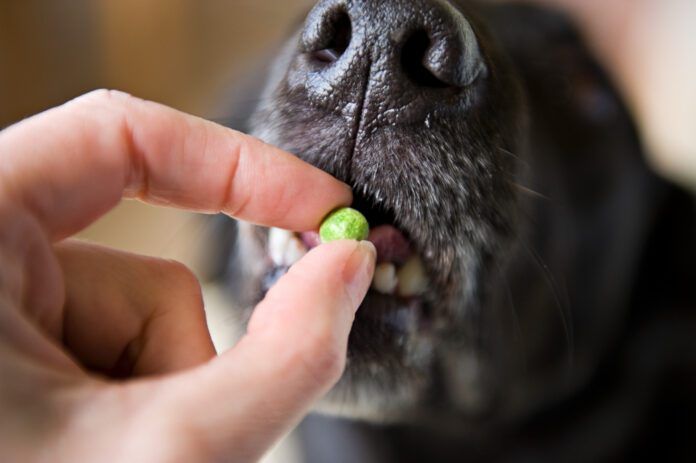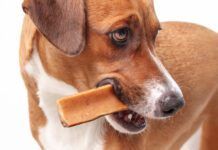The question of whether peas and pea protein are bad or good for dogs cannot be answered simply. In moderation and as a part of a balanced formulation, pea protein can be a useful component of dog food, especially when paired with high-quality animal proteins. However, concerns have emerged over formulations that rely too heavily on plant-based proteins, like peas, which may not provide the same biological value or amino acid profile as animal-based proteins. When these plant proteins dominate the ingredient list, especially in grain-free diets, it may indicate a formula that is trying to achieve a high protein percentage without having to invest in expensive animal protein sources.
Peas and the Push for Grain-Free Dog Food
In recent years, peas and legumes have become increasingly common ingredients in commercial dog food, especially as pet owners seek grain-free or high-protein diets for their dogs. Ingredients such as peas, lentils, chickpeas, and beans are now frequently used in place of traditional grains like corn and wheat. They are often marketed as healthier alternatives and are promoted for their protein content. However, their growing prevalence has sparked debate among veterinarians, nutritionists, and dog owners alike as to whether they are a good choice for use in pet food.
Peas Are Good for Dogs
Peas and legumes serve several functions in dog food. They act as sources of dietary fiber, plant-based protein, and essential vitamins and minerals. Whole peas and lentils can contribute to the fiber content of the food, which can promote a healthy gut and helps regulate bowel movements. They also provide plant-derived nutrients such as B vitamins, iron, and magnesium. In grain-free formulations, legumes are often used in a functional role to help maintain texture and consistency of dry kibble, replacing the role traditionally played by grains. For dog owners looking to avoid grains due to allergies or sensitivities, legumes offer a convenient alternative.
Is Pea Protein Bad for Dogs?
One of the most controversial aspects of using legumes in dog food is the inclusion of pea protein. Pea protein is a concentrated protein source often used to boost the total protein content of a food without relying entirely on animal sources. While protein is an essential nutrient for dogs, the quality and animo acid composition of the protein matters significantly.
Animal proteins are considered complete proteins because they contain all the essential amino acids dogs require. Plant proteins, including pea protein, are typically incomplete and may lack one of more essential amino acids and need to be balanced using other ingredients.
The DCM Issue and Peas for Dogs
Another concern that has gained attention in recent years is the potential link between diets high in legumes, particularly grain-free diets using high inclusions of peas and lentils, and canine dilatated cardiomyopathy (DCM). This is a serious heart condition that can lead to heart failure.
The United States Food and Drug Administration (FDA) began investigating this potential link after receiving reports for DCM in dogs that were not known to be genetically predisposed to the disease but were consuming grain-free diets rich in legumes. While the exact cause has not been definitely identified, the potential role of dietary taurine or amino acid bioavailability due to excessive legume inclusion is being studied.
The inclusion of peas or pea protein in dog food is not inherently dangerous. Many dogs thrive on diets that contain moderate amounts of legumes, especially when these diets are properly balanced with other ingredients. As with many ingredients in pet nutrition, context matters.
Peas and legumes can offer nutritional benefits when used thoughtfully and in moderation. They can contribute protein, fiber, and nutrients to a dog’s diet. Pea protein is not inherently harmful, but it should not serve as the primary or sole source of protein in a dog’s diet. Animal-based proteins remain the gold standard for canine nutrition, providing optimal amino acid profiles and more complete support for a dog’s physiological needs.







Thanks for covering this topic and you nailed many misconceptions about peas and legumes. One thing that needs more coverage however is the issue now that these are also phytoestrogens. While phytoestrogens are good for spayed and neutered dogs, intact females should not be eating this and they have proved quite a quandary for show dogs and breeders.
Well, I had a golden that had normal baseline OFA echo cardiac screening at 2 and then developed DCM several years later from eating grain free food with peas and legumes in it. How do I know it was the food? Because after her diagnosis by the cardiologist she was changed to Purina Pro Plan, and at her follow up echo cardiograms her DCM has resolved. She was part of the dogs whose findings were reported to FDA. I will never feed a dog food with peas or other legumes in the first 5 ingredients. I am willing to share my thousands of dollars spent on cardiology bills, echocardiograms and holter monitor testing if anyone wants proof.